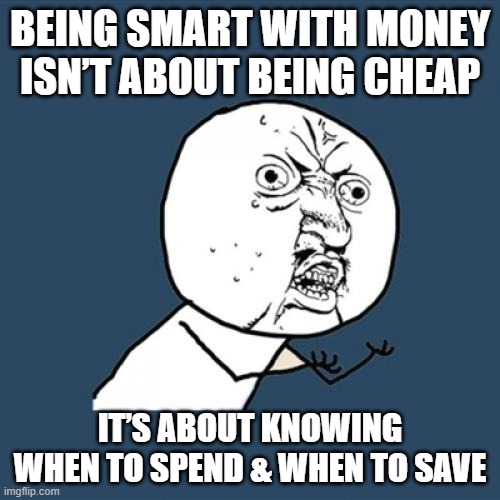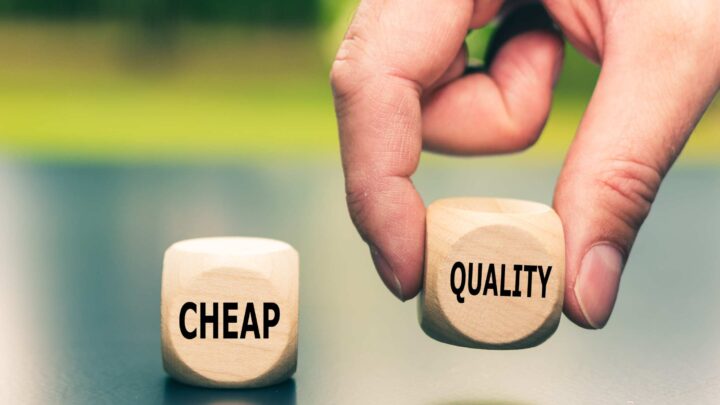Hello Grasshoppa,
Saving money is an art, but have you ever considered how being too cheap can cost you more in the long run? Today, let’s explore how penny-pinching, when done without strategy, can turn into a costly mistake.

1. Low-Quality Purchases
Sometimes, going for the cheapest option means sacrificing quality. Cheap items often wear out faster, leading to repeated purchases & higher costs over time. Buying a low-quality pair of shoes might save you money now, but replacing them every few months is more expensive than investing in a durable pair upfront. This had happened to me before in the past where I was cheap towards some purchase but after multiple times spending & buying the same product due to cost difference, I realized that it is best to pay more for some stuff over a better quality & long term purchases.
Lesson: Always evaluate the balance between cost & longevity.
2. Missed Opportunities
Being overly frugal can mean missing out on opportunities that could lead to long-term benefits. This includes education, networking events, or investments. If you have some courses that you find beneficial to you, you should consider to attend it despite the price. Your initiative to save RM100 could mean losing the chance to learn a skill that could boost your income significantly.
Lesson: Think of certain expenses as investments in your future.

3. Health & Well-Being Sacrifices
Cutting costs on healthcare, fitness, or nutritious food can lead to long-term health issues, which are often expensive to treat. Something that I am constantly trying to do for myself is to ensure I eat right while finding ways to save of some expenses. The fact is, opting for the cheapest junk food instead of nutritious meals might save money today, but could result in costly medical bills tomorrow.
Lesson: Prioritize spending on things that directly impact your health & quality of life.
4. Strained Relationships
Being overly focused on saving can create friction in relationships, whether with family, friends, or business partners. For example, avoiding your share of group expenses or constantly arguing over small costs can leave a negative impression.
Lesson: Be mindful of how your financial habits impact others around you.

5. The Value of Time
Time is money, & being cheap often means spending extra time to save small amounts. This is something that I find to be important as I value time over a small amount of money. Some people have the habits of driving an extra 30 minutes to save RM5 on groceries might not be worth the fuel cost or time lost.
Lesson: Learn to value your time as much as your money.
Actionable Tips:
- Focus on Value, Not Just Cost: Evaluate the long-term benefits of your purchases.
- Invest in Quality: Pay more for items that last longer & perform better.
- Prioritize Health & Knowledge: Spend wisely on things that improve your well-being & earning potential.
- Strike a Balance: Budget for both needs & occasional indulgences to maintain a balanced life.
Conclusion:
Grasshoppa, being mindful of your spending is essential, but being overly cheap can limit your opportunities, relationships, & overall quality of life. The key is to distinguish between saving & compromising. When you prioritize value & invest wisely, you’ll find that your financial journey becomes not only sustainable but also rewarding.

OSS!


